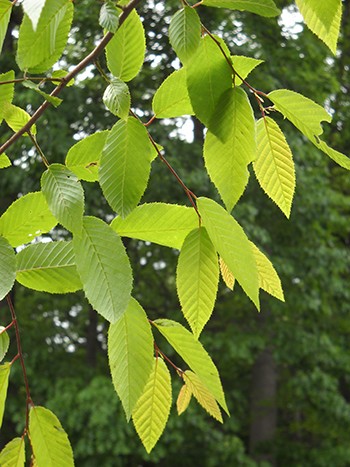Carpinus caroliniana
 In celebration of Arbor Day, let discuss the amazing native American Hornbeam, Carpinus caroliniana.
In celebration of Arbor Day, let discuss the amazing native American Hornbeam, Carpinus caroliniana.
This native tree has seeds, buds, and catkins that are eaten by songbirds, ruffed grouse, ring-necked pheasants, bobwhites, turkeys, foxes, and gray squirrels. Cottontails, beavers, and white-tailed deer enjoy the leaves, twigs, and larger stems.
Just as early Americans used this solid hardwood to fashion their homes and agricultural tools, beavers love this hardwood to build their habitats.
The American hornbeam is a medium-sized, slow-growing, deciduous tree and can be found in wild near ravine bottoms and on rocky slopes along streams. These sites generally have abundant moisture but sufficient drainage to prevent saturation and poor aeration during the growing season; trees may also grow on sites flooded for up to 20% of the growing season. In a garden situation, American hornbeams prefer organically rich soils offering moderate moisture.
The attractive smooth gray bark has been said to resemble a muscle; in fact, another common name for this tree is musclewood.
Receive your own American hornbeam to plant on Saturday, April 25 from 10 am to 1 pm during our Arbor Day Open House.





No Comments